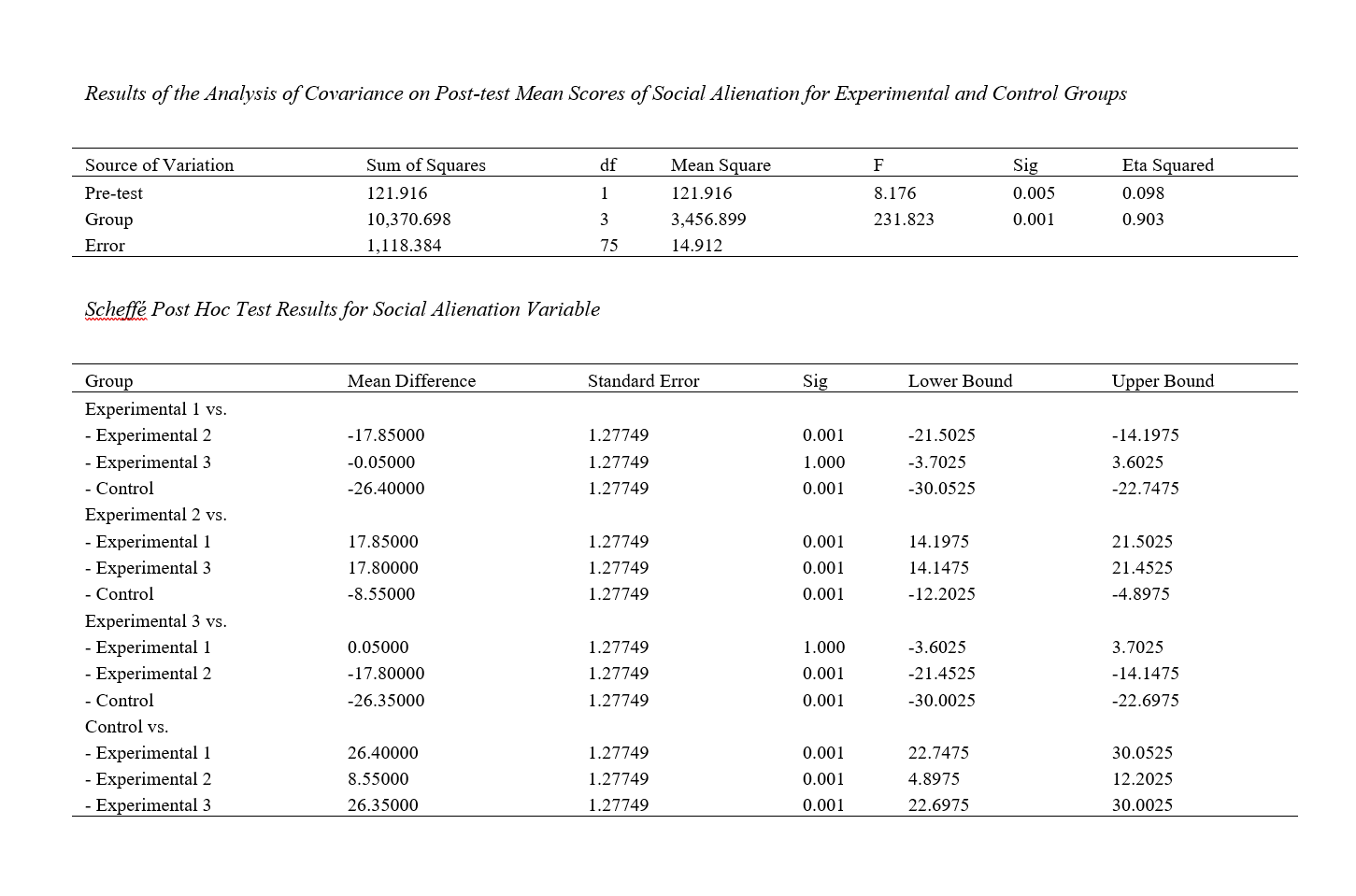Comparing the Efficacy of Cognitive-Behavioral Therapy, Brief Intervention, and Combined Intervention on Reducing Social Alienation in COVID-19 Recovery Patients in Andimeshk
Keywords:
Cognitive-behavioral therapy, brief intervention, combined intervention, social alienation, COVID-19 virusAbstract
Objective: This study aimed to compare the effectiveness of cognitive-behavioral therapy, brief intervention, and combined intervention on social alienation among COVID-19 recovery patients in Andimeshk. Research
Methods and Materials: The method used in this study was a quasi-experimental pre-test post-test design with a control group. The sample consisted of 80 COVID-19 recovery patients covered by comprehensive health centers in Andimeshk, who were randomly assigned to experimental and control groups (each group containing 20 individuals). The experimental group underwent cognitive-behavioral therapy interventions in eight 90-minute sessions held weekly, while the control group received no intervention. Data were collected using the Melvin Seeman Social Alienation questionnaire, and hypotheses were tested using analysis of covariance.
Findings: The results showed a significant difference between the effectiveness of cognitive-behavioral therapy and brief intervention on social alienation among COVID-19 recovery patients in Andimeshk; however, no significant difference was found between the effectiveness of cognitive-behavioral therapy and the combined intervention on social alienation among these patients.
Conclusion: Based on the findings, it can be concluded that cognitive-behavioral therapy is effective in reducing social alienation, and there is no difference in effectiveness between cognitive-behavioral therapy and the combined intervention (cognitive-behavioral therapy and brief intervention).
Downloads

Downloads
Additional Files
Published
Submitted
Revised
Accepted
Issue
Section
License
Copyright (c) 2024 Abbas Rahmati (Author); Reza Ahmadi (Corresponding Author); Shahram Mashhadizadeh, Ahmad Ghazanfari (Author)

This work is licensed under a Creative Commons Attribution-NonCommercial 4.0 International License.








